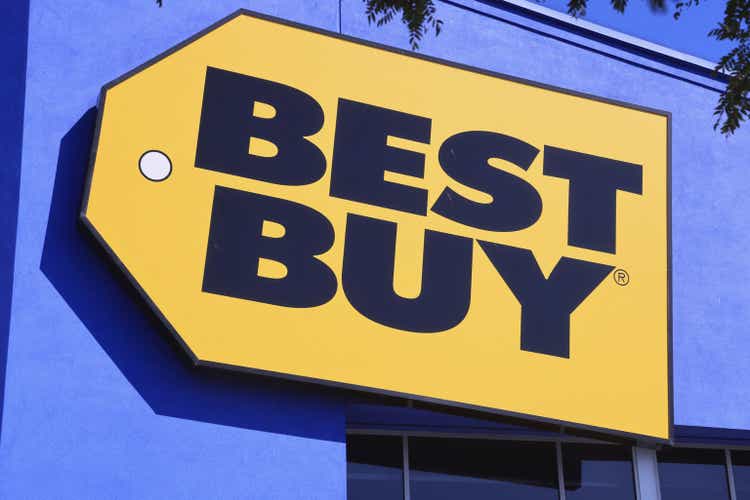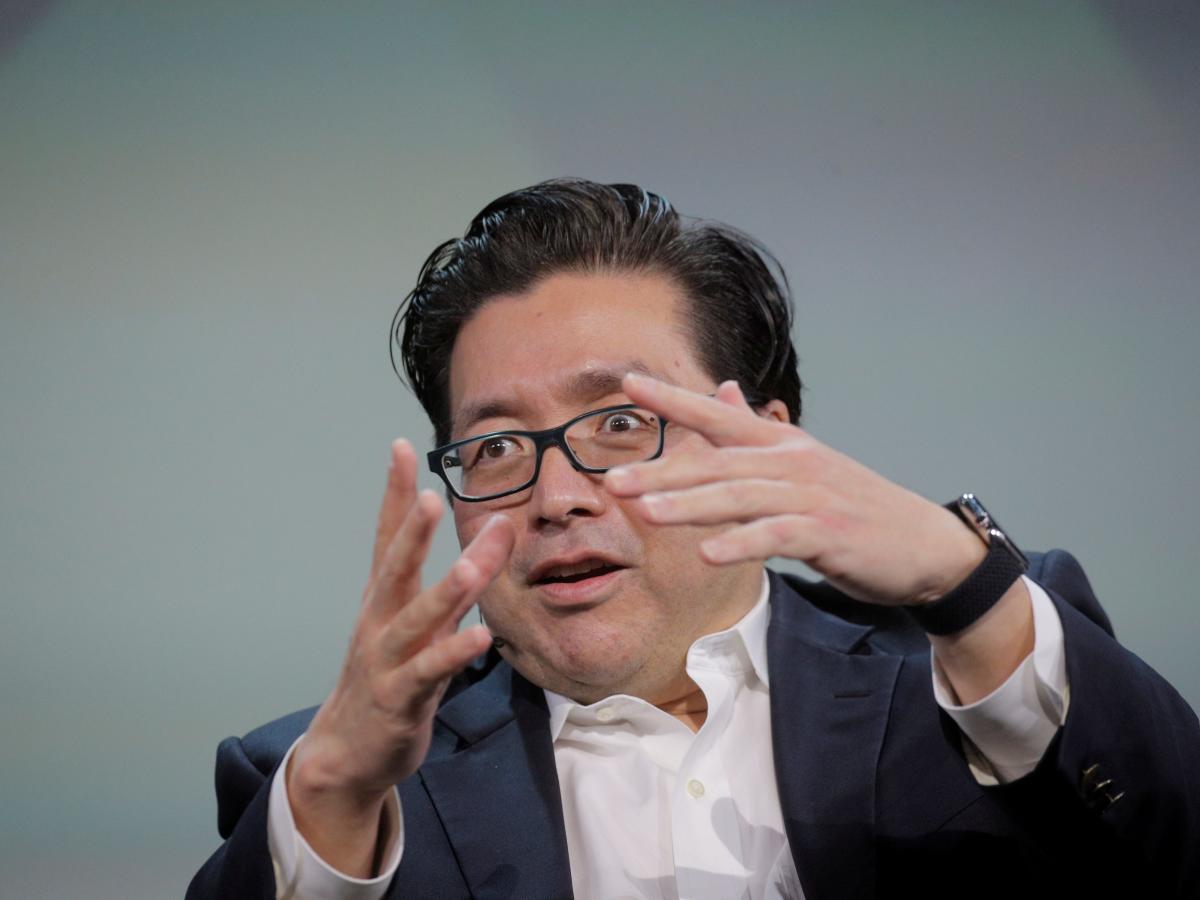[ad_1]

Bruce Bennett/Getty Images News
Best Buy Co, (NYSE:BBY) gained in early trading on Tuesday after topping estimates with its Q2 earnings report. Revenue fell 7.3% during the quarter for the Minneapolis-based company, but was ahead of estimates. EPS came in at $1.22 vs. $1.07 consensus and $1.54 a year ago.
The retailer said it saw domestic comparable sales fell 6.3% during the quarter. The comp decline was better than the -7.4% consensus, but also followed a 12.% comp decline a year ago to highlight the steep drop in sales over a two-year period. The largest drivers of the comparable sales decline on a weighted basis were noted to be computing, appliances, home theater and mobile phones. Those drivers were partially offset by growth in the gaming and services categories. Enterprise comparable sales were down 6.2% during the quarter and international comparable sales dropped 5.4% during the quarter.
Best Buy’s (BBY) domestic gross profit rate improved 110 basis points to 23.1% of sales. The higher gross profit rate was primarily due to favorable product margin rates and improved financial performance from the company’s membership offerings, which included higher services margin rates and reduced costs associated with program changes made to the company’s free membership offering. BBY saw an improved gross profit rate from the company’s health initiatives also factor in.
Non-GAAP operating income as a percentage of revenue declined to 3.8% of sales from 4.1%.
Guidance for the full year: Best Buy (BBY) sees revenue of $43.8B to $44.5B vs. $43.8B to $45.2B prior range and $44.3B consensus. Comparable sales are expected to decline of 4.5% to 6.0%, which compares to prior guidance of a decline of 3.0% to 6.0%. BBY’s enterprise non-GAAP operating income rate is seen landing in a range of 3.9% to 4.1%, which compares to prior guidance of 3.7% to 4.1%. Non-GAAP diluted EPS of $6.00 to $6.40 is anticipated vs. $5.70 to $6.50 prior range and the consensus estimate of $6.07. Capital expenditures of approximately $850M are anticipated.
“Our financial results were better than expected, and they reflect a consumer electronics industry that remains challenged due to the pull-forward of demand in prior years and the various macroeconomic factors that we are all too familiar with,” noted CEO Corie Barry. Looking ahead, Barry said Best Buy continues to expect that this year will be the low point in tech demand after two years of sales declines. “Next year the consumer electronics industry should see stabilization and possibly growth driven by the natural upgrade and replacement cycles and the normalization of tech innovation,” she noted.
Shares of Best Buy (BBY) rose 2.06% in premarket trading to $75.60 vs. the 52-week trading range of $60.79 to $93.32. The retail stock is still down more than 10% over the last six weeks.
[ad_2]












